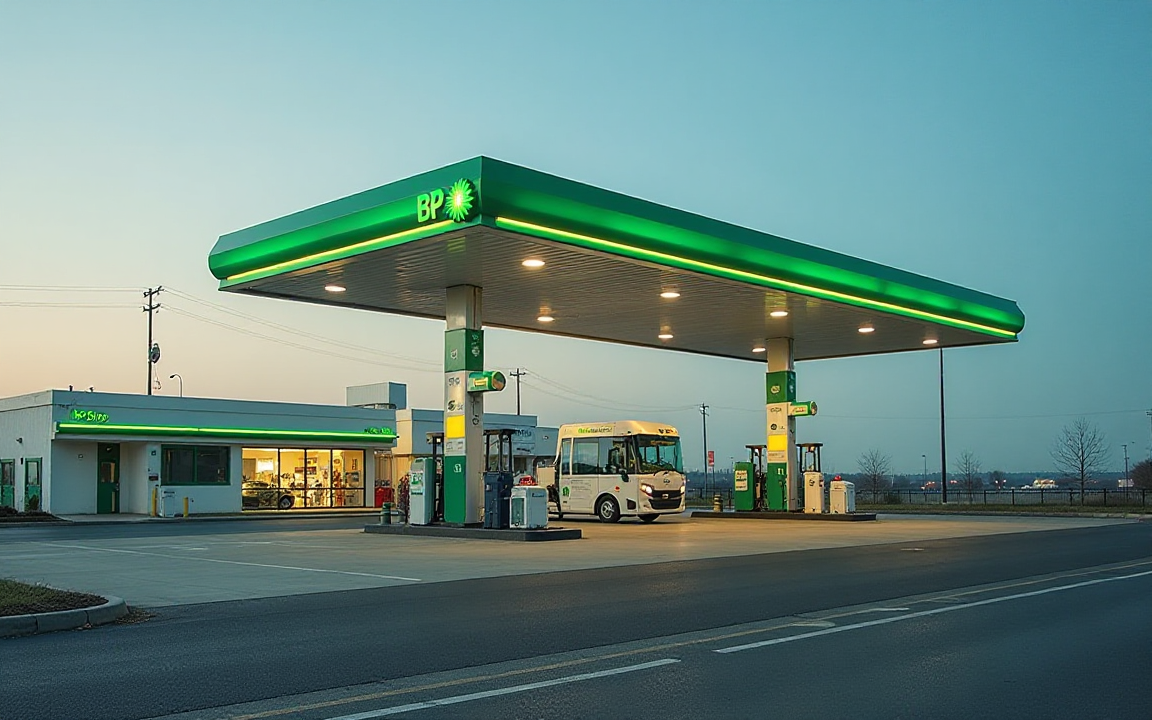
BP, leading the consortium that owns the Shah Deniz gas field in the Azeri Caspian Sea, announced a $2.9 billion investment decision on Tuesday to increase the project’s production capacity.
In a strategic realignment, the British oil giant is pivoting from renewable energy to increased oil and gas production.
This includes operations in Azerbaijan, a country emerging as a key energy provider to Europe as it diversifies away from Russian sources.
Key agreements were finalised during the Baku Energy Week.
Investments
These agreements include approving investments for the Shah Deniz gas field’s next development phase, known as Shah Deniz Compression.
Additionally, decisions were made on two projects focused on reducing operational emissions: terminal electrification and solar power implementation.
It also includes agreements for BP to access two new exploration and development licences and introduce a new partner to accelerate exploration on a third, the company said in a release.
BP, with approximately 29.9% ownership and operational control of the Shah Deniz project, reported that the field yielded 28 billion standard cubic meters of gas and over 4 million tonnes (equivalent to about 35 million barrels) of condensate last year.
Several companies hold ownership in the field. These include LUKOIL of Russia, TPAO of Turkey, SGC of Azerbaijan, NICO, and MVM of Hungary.
Boosting production
The Shah Deniz expansion aims to extract low-pressure gas, boosting production by 50 billion cubic meters of gas and roughly 25 million barrels of extra condensate throughout the project’s lifespan.
“These agreements represent progress against BP’s strategy to grow long-term shareholder value, contributing to its goal of growing its upstream business, as well as underlining bp’s continuing commitment to Azerbaijan,” the company said.
“We are deeply proud of the long and successful partnership that BP has built with Azerbaijan over more than 30 years,” Gordon Birrell, EVP production & operations at BP, said in the release.
As can be seen by the agreements we signed this week, we continue to see many opportunities for further development and growth.
Despite an initial investment in renewable energy sources in 2020 that did not succeed, BP has decreased its expenditure.
The company has redirected funds from environmentally friendly initiatives to oil and gas ventures and has committed to significantly reducing its debt by 2027.
“These projects are fully accommodated within BP’s financial frame. Shah Deniz Compression is one of the 8-10 major projects expected to start up between 2028 and 2030,” BP said.
It is expected to contribute to growing bp’s global upstream production to 2.3-2.5 mmboed by 2030, with capacity to increase further to 2035.
Other acquisitions
Separately, BP also announced on Tuesday the finalised acquisition of interests in two Caspian Sea offshore exploration and development blocks within Azerbaijan’s territory.
BP said it has signed agreements with the Azeri state energy company SOCAR to finalise a deal.
Azerbaijan focuses primarily on established Caspian Sea oilfields for production. The nation intends to keep its oil output near 582,000 barrels daily for the next five years, supported by investments from international energy firms.
President Ilham Aliyev announced on Monday that Azerbaijan intends to boost natural gas exports by 8 billion cubic meters by 2030. The country’s natural gas exports reached 25 billion cubic meters in 2024.
Exxon Mobil and SOCAR, Azerbaijan’s state energy firm, announced Monday an agreement to jointly explore onshore oil and gas production within Azerbaijan.
The post BP’s $2.9B Azerbaijan investment fuels gas production expansion appeared first on Invezz

